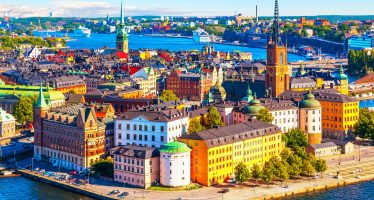Double Dip Recession in the Making, UK Expected to Emerge First
 The Deutsche Bundesbank expects a double dip recession. Analysing non-traditional indicators such as Google Map traffic data and air and water pollution, the German central bank detected a significant retreat of last week’s economic activity index. Consumer confidence is also waning with a 20% of respondents admitting to a hesitancy to go ahead with major purchases, up four percentage points since December. Manufacturing output provided a thin silver lining to an otherwise depression picture. In line with the other major eurozone economies, German industrial production showed a surprising resilience, largely supported by strong exports.
The Deutsche Bundesbank expects a double dip recession. Analysing non-traditional indicators such as Google Map traffic data and air and water pollution, the German central bank detected a significant retreat of last week’s economic activity index. Consumer confidence is also waning with a 20% of respondents admitting to a hesitancy to go ahead with major purchases, up four percentage points since December. Manufacturing output provided a thin silver lining to an otherwise depression picture. In line with the other major eurozone economies, German industrial production showed a surprising resilience, largely supported by strong exports.
Though the final numbers for the fourth quarter of 2020 are not in yet, most economists predict a contraction of around 2% across the eurozone. The Bundesbank now fears that the first quarter of 2021 may produce another dip for two consecutive quarters of negative growth – and a second, double dip, recession in a year. The recent tightening of lockdown measures, and the slow pace of the vaccination drive, do not bode particularly well for the current year.
Next Thursday the European Central Bank (ECB) holds its first rate-setting meeting of 2021, with analysts expecting no major changes. However, ECB-President Christine Lagarde indicated before the weekend that the bank is not about to tighten monetary policy: “That would be very unwarranted at the moment.” Lagarde indicated that the ECB may yet again expand its bond-buying programme which currently stands at €1.85 trillion and runs through March 2022. Last week, both Germany and The Netherlands extended their lockdowns.
Chancellor Angela Merkel said that the restrictions will likely last another eight to ten weeks before any thought may be given to their relaxation. In The Netherlands, where the government of Prime Minister Mark Rutte resigned over a report detailing the social damage wrought by the strict policies pursued by the country’s revenue service, the lockdown was extended by three weeks. Rutte, now heading a caretaker government, remains in charge but is prevented by political precedence to undertake major policy initiatives. The country goes to the polls on 17 March and Rutte’s liberal VVD is expected to gain additional seats in parliament and remain the country’s largest political party.
Meanwhile, the ECB has signalled its growing concern over the gathering strength of the euro against the US dollar which puts an added downward pressure on inflation. Ms Lagarde said that the bank is closely following the exchange rate impact on consumer prices. In the UK, the Bank of England (BoE) continues to resist cuts that would move the benchmark interest rate into negative territory. Investors do not expect the BoE to yield even though inflation shows no signs of revival. However, a growing number of analysts is willing to bet against Threadneedle Street in light of the disappointing numbers published Friday by the Office of National Statistics that showed a GDP contraction in November – the first in six months. Next Wednesday, inflation numbers are released which may trigger a response from the BoE when its monetary policy committee meets next month. An external member of the committee called the option of negative rates an ‘important tool’.
UK Foreign Secretary Dominic Raab warned over the weekend that the lockdown restrictions are not likely to be relaxed before March and then only if the vaccination programme stays on track. Markets are anticipating the UK to be the first of the major economies to emerge from the Corona Pandemic. The country’s immunisation campaign is significantly further ahead than those on the continent with Sir Simon Stevens, head of the National Health Service (NHS) in England, announcing that each minute 140 jabs are being delivered – a rate four times faster than the number of new covid-19 cases detected. Stevens also said that the English NHS was on track to deliver 1.5 million doses this week.
You may have an interest in also reading…
What You Need to Know About Stockholm+50
On 2 and 3 June 2022, world leaders and representatives from government, business, international organizations, civil society and youth will
The Great Equaliser That Was Not
In a macabre spin on the corona pandemic, some sociologists and economists tentatively hail the deadly virus as the great
The First Days: The Need for Speed in US Politics
In his inauguration speech, President Joe Biden called US democracy precious and fragile: “And at this hour, my friends, democracy

















































































